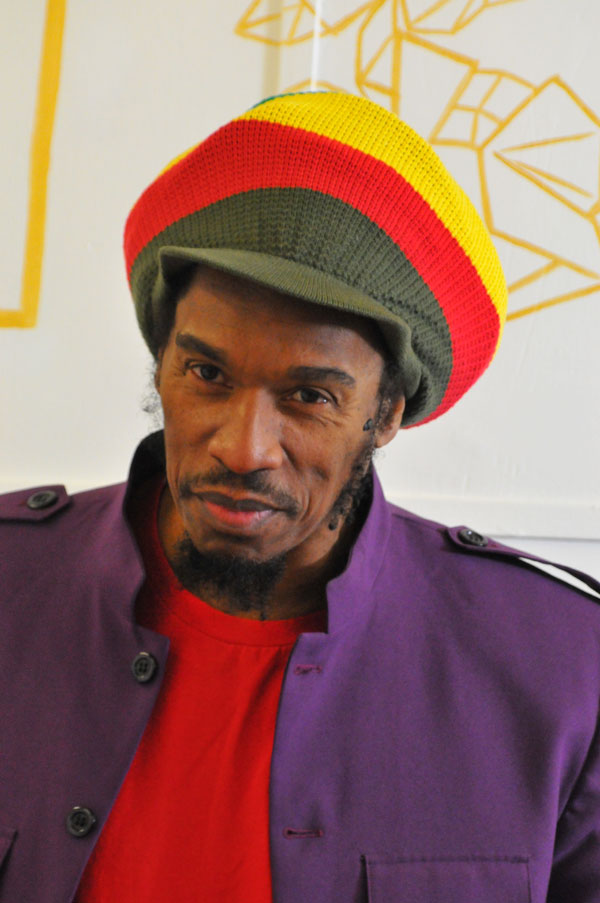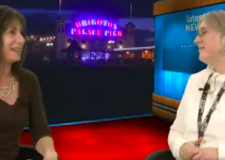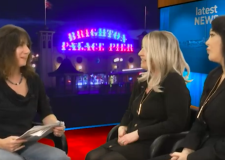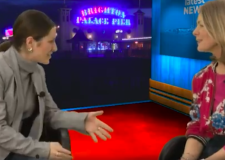Interview: Benjamin Zephaniah

He befriended Nelson Mandela, fought in the 1980s race riots and recorded radical and relevant reggae music with Bob Marley’s former band. Benjamin Zephaniah speaks with Victoria Nangle ahead of his upcoming show at The Old Market.
Why do you think it is that poets’ voices are preserved so well as to reflect the deeper emotions in history and society?
I think there are many reasons for this and those reasons depend on political events, cultural events, and then there are the personal events. The cultural and political may be obvious, but the personal is a lot more interesting.
When a fellow human being is feeling pain, love, or even indifference, if it is expressed in an honest way, it will connect with many generations to come. Even if a poet expresses something relating to culture or politics, if it is honest it is more truer than the politician who is towing the party line and seeking promotion at best, or power at worst. Shelley said, “Poets are the unacknowledged legislators of the world”. I love Shelley, but I think they are only unacknowledged by people who are writing and controlling ‘state’ history. The greatest poets are acknowledged by the people, but the people don’t make statues of them. They can’t get planning permission.
Why is it do you think that poetry, having started historically as something to be heard, made its home on the page for such a long time, only sometimes moving into the performance arena?
I believe this is because when the printing press was invented only the power had access to it, and they turned poetry into a so called ‘intellectual’ pursuit. There are still many parts of the world where poetry is mainly seen as a spoken art form. In the west it goes and comes with trends.
This tour ties in with your new autobiography. Your poetry and readings have had an immediacy in them, almost like keeping diaries over the years, perhaps. How much have you mined your previous publications for this one?
I haven’t. This (autobiography) was a book I wasn’t interested in writing. My late agent convinced me that my personal life was worth documenting. I’m still amazed at how well it’s been received. The main character in this book is me, but I’m already looking forwards to my next book.
You have witnessed so much of history first hand, from your friendships with Nelson Mandela and Tony Benn, to bearing political witness in Britain at a grass roots level in Birmingham and London. How much do you feel the truth of witnessing so much history?
It is quite strange when you reach my age and people talk about events and people I knew well as history. Sometimes I find myself intervening in conversations and debates saying ‘It didn’t happen like that, I was there’. I can think of many people and events, good and bad that I can say I’ve met or seen that are of great importance in world history. But then I ask myself what would have happened if I was born 200 years ago or in 200 years time? I’m sure that if I am a poet, with something to say at any time I would meet such people and witness historic events. Just different ones.
The greatest poets are acknowledged by the people, but the people don’t make statues of them. They can’t get planning permission
Who do you admire in this current climate, and why?
Noam Chomsky for his clarity.
Arundhati Roy for her clarity.
I was surprised to see that you were poet in residence at Keats House in Hampstead. It’s quite serene there. How much do you think a creative’s environment impacts upon their output?
I have to say it wasn’t serene when I was there. I had poetry parties with school children, I had a poetry roast (like comedy roast) with me as the target, I brought schools in from Hackney and other places unlike Hampstead, and I even had homeless people doing poetry there. But I really don’t know about your question about the creative environment. I live rural now, but I’ve written very little about rural life. Three of my novels are set in East London, but I wrote them in China. My ideas are in my head, I just need time to write.
It’s great to see that you’ve written specifically for children too. How much do you think books like yours would’ve helped with your own literacy learning when you were at school?
I’m very dyslexic, so reading a dyslexic writer would have been inspiring, but reading about people and places that I know would also have been inspiring. When I see what my books do for young people now, I know similar books would have done the same for me.
You’ve collaborated musically with some great artistes, including The Wailers and Sinead O’Connor. Who is on your wish list to work with– dead or alive – and what track would you like to work with them on?
I would have loved to have worked with Prince. I don’t know what in the world I could do with them but I’d love to do absolutely anything with Die Antwoord.
What advice would you give to poets trying to be heard now?
Be honest, don’t fear the system, and be careful which TV commercial you do.
The Life And Rhymes Of Benjamin Zephaniah, The Old Market, Sunday 27 May, 7.30pm, £22/20





















